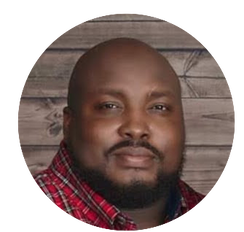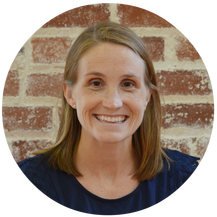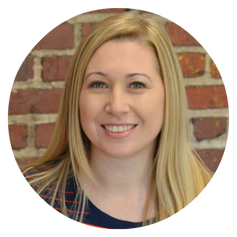“Beyond Acceptance”: Affirming All Learners at Charlotte Lab School

What might be possible if affirming and understanding all identities was our new normal?
In our latest “Roads to Reinventing” dispatch, we’re visiting Charlotte Lab School, a North Carolina public charter school where students solve real-world problems and collaborate with people from all backgrounds. The school, which is racially and economically “diverse by design,” seeks to “reflect the city of Charlotte” in the composition of its family and staff.
“How do we change what we are doing as educators to pull out what makes kids brilliant, rather than push it down? How do we celebrate them as individuals?” explains Meg Scott, who leads Lab’s Primary School (K-1), noting that the school’s innovative approach is grounded in engaging, authentic learning that’s personalized to each student.
How do we change what we are doing as educators to pull out what makes kids brilliant, rather than push it down? How do we celebrate them as individuals?
Meg Scott, Head of Primary School
Prior to the pandemic, Lab had begun to integrate diversity, equity, and inclusion (DEI) in a more explicit and intentional way: e.g., elevating an Indigenous perspective on the Thanksgiving story, supporting staff members to take and reflect on implicit bias assessments, weaving DEI into non-academic classes. Over the summer, as part of Transcend’s partnership with Teach for America’s Reinvention Lab, the school leaned even deeper into this work: “How can we not move forward with this? We can’t let life stop just because we are in our homes.”
With my students of color and their families, it is important to empathize, understand their situation, their culture, beliefs, respect and integrate them, create a relationship of trust between us, not minimize their problems, provide a space for conversation in our classes, incorporate materials, people or things in which they identify with, use the community and its resources as part of our classes.
Astrid Salas, Kindergarten Spanish Teacher and English Language Learner Coordinator
In fact, making the leap to Affirmation of Self & Others during a pandemic and in an environment of heightened racial awareness has inspired Lab teachers in profound ways. Angela Walker, an interventionist, reflects:
“I’ve always viewed teaching as a form of activism, but the events that have occured in the past year have just solidified and sparked a newfound passion in that. We’ve spent the past year embracing difficult conversations and making important topics K-1 friendly. Seeing the growth and acceptance our students have displayed so far is absolutely beautiful. I am so proud to hear students be culturally sensitive and curious and draw characters of color in their own stories. Going forward, I want them to find the strength in their voice and to understand that they too have the power to affect change, even at their age.”
Read more about how Charlotte Lab staff are leaning into this work and moment below.
How has your experience of and commitment / approach to doing this work changed because of what’s happening in our world and where we are as a country?

“My commitment and approach have basically stayed the same. Some of the things that are happening in the world today are heartbreaking, but I have always been able to tell my students that we are all equal.”
– Malshaun Burns, Dean of Students
My approach has had to change as I feel that the most important work in teaching is building relationships with the students and their families. I log onto my Zoom calls early to visit with students as well as stay on after our calls are scheduled to end. The students just want to be heard and be able to talk. The parents also just want to be heard and to know that they are important in this process as well. – Leslie Chambers, Exceptional Children’s Teacher (special education)
What is happening in the world today are changes which we cannot ignore and let them pass. We need to stop thinking that they do not influence us or that we cannot do anything to change them. Charlotte Lab has shown me that I do have a voice and I can advocate for my students of color, in giving them hope that they do have the right to learn and succeed in everything, but most important as human beings. – Astrid Salas, Kindergarten Spanish Teacher and English Language Learner Coordinator
I’ve always viewed teaching as a form of activism, but the events that have occured in the past year have just solidified and sparked a newfound passion in that. We’ve spent the past year embracing difficult conversations and making important topics K-1 friendly. I’ve realized that it is so important to let our students grapple with topics and teach them about diversity in others and ourselves. By doing this, we’re teaching the next generation of people to love themselves and others, to embrace the things that make them unique, and to be accepting and curious about the world. – Angela Walker, Interventionist
How are you holding space for yourself in this moment and supporting students and families of color in the Lab community?
By making myself available. The faculty/staff and families know how much I am devoted to making sure that our students have all of their supplies even if that means taking it to them personally on the weekends. I want to make sure that all students have every opportunity to learn on a daily basis.
– Mr. Burns

“I do not always feel prepared to discuss some of the challenging topics that are happening around us but the students are. They say what they hear, see, or know about topics and I have tried to do the same. Luckily, during our advisory lessons at the beginning of the year we taught about diversity and how we are different and the same in many ways. This has allowed me to come back to the idea of diversity and how important it is to recognize our similarities and differences and appreciate/respect them. Our advisory lessons have allowed us to celebrate diversity and recognize everyone’s differences.“
– Ms. Chambers
With my students of color and their families, it is important to empathize, understand their situation, their culture, beliefs, respect and integrate them, create a relationship of trust between us, not minimize their problems, provide a space for conversation in our classes, incorporate materials, people or things in which they identify with, use the community and its resources as part of our classes. The most important thing for me is they feel loved by me and the school. – Ms. Salas
I think it’s important to model vulnerability and just not having all the answers all the time. I give myself time to feel before I’m ready to talk and if I haven’t had that, I tell adults and students “I want to speak from a clear mind and heart and I’m not ready to do that yet.” It’s important to me that I give myself that space and I allow students to have that space as well. Families of color, especially, are going through a really hard time with COVID and just being of color in America. I give people space to feel what they feel, but also try to be a source of light and, more than anything, consistency. I think everyone is searching for some type of consistency right now. I do small things in my class and through email communication with parents to stay consistent. You’d be surprised how far a “how are you doing?” goes. – Ms. Walker
What are your hopes and plans around what will continue this year and beyond the pandemic?
I hope that we have observed students and taken in what we can learn about them from their environments outside of school and the interactions that we have had with them and their families.
– Ms. Chambers

“We saw how important it was to have information from all the students, as we have never seen teachers, educational assistants, and directors looking for various strategies to monitor the pedagogical and emotional and family status of all the members of the community. This is something that will stay with us beyond this pandemic.“
– Ms. Salas
I plan to continue exposing students to diverse people and traditions, to continue teaching students to think critically about issues the world is or has faced, and to encourage acceptance of ourselves, our growth, and others in our community.
– Ms. Walker
Authors:
Divya Mani, Partner at Transcend
Malshuan Burns, Dean of Students at Charlotte Lab School
Leslie Chambers, Exceptional Children’s Teacher (special education) at Charlotte Lab School
Astrid Salas, Kindergarten Spanish Teacher and English Language Learner Coordinator
Meg Scott, Head of Primary School at Charlotte Lab School
Angela Walker, Interventionist at Charlotte Lab School
Transcend supports communities to create and spread extraordinary, equitable learning environments.

